Darren Varndell's Blog
February 9, 2015
SEO BOOK SALE - Learn SEO for Kindle
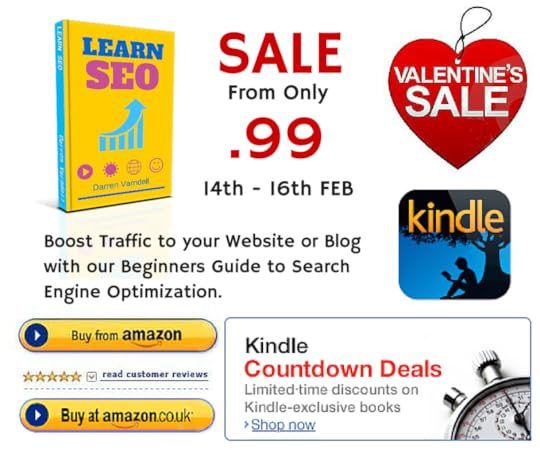 Here is your opportunity to get your hands on our 5 star rated, best selling Kindle eBook; Learn SEO: Beginners Guide to Search Engine Optimization, for as little as $0.99
Here is your opportunity to get your hands on our 5 star rated, best selling Kindle eBook; Learn SEO: Beginners Guide to Search Engine Optimization, for as little as $0.99 SEO KINDLE BOOK SALE 14-16 FEB
Starting on Valentine's Day, the Kindle eBook version of Learn SEO will be available from Amazon.com and Amazon.co.uk at the reduced price of only $0.99 USD (£0.99 GBP), with the discount being reduced over the following two days, until returning to the usual price of $2.99 on 17th February.
Learn SEO: Beginners Guide to Search Engine Optimization brings you an easy to understand, step-by-step, beginner's guide to learning Search Optimization, based on years of experience in the industry, and fully up to date for the SEO challenges that face webmasters for 2015 and beyond.
Providing clear explanations on every important ranking factor, and other vital aspects of Search Engine Optimization, you can improve your rankings, boost traffic, and ultimately sales by learning the straight forward SEO techniques presented in this book!
Full Details Here.

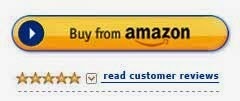
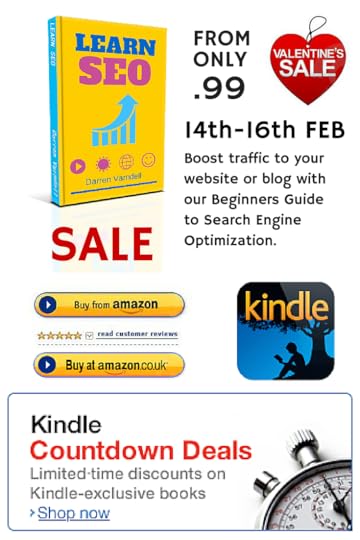 http://www.ezwebsitepromotion.com/learn-seo.asp
http://www.ezwebsitepromotion.com/learn-seo.asp
Published on February 09, 2015 12:13
November 7, 2014
Googlebot Changes You Should Know
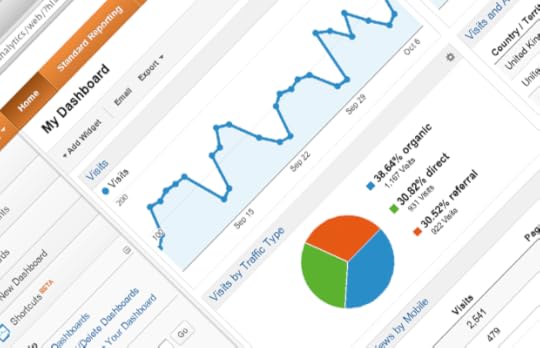 Googlebot Changes You Should Know
Googlebot Changes You Should KnowA cause of much speculation with webmasters in recent weeks has been the likely reasons behind a new addition to Google's Webmaster Tools; namely the Fetch and Render option now available from the Fetch as Googlebot section.
Google has announced that this new feature has been introduced to allow webmasters to see how Googlebot thinks your website actually looks like, and to reveal to the webmaster where items may be blocked by robots.txt file, resulting in Google getting an unclear picture of how your website is laid out.
Why is this important? Well it suggests that Google now frowns upon certain aspects being blocked to Googlebot, such as Javascript, Images and CSS files, presumably because these files could be masking content from the user, in order to cram in keywords or any other type of keyword manipulation.
It is likely that this move signals a potential penalty in the future for sites that block such content, and so we suggest you ensure that ALL files that are called from a web page that is indexed by Google, be allowed to be crawled by Googlebot, by editing your Robots.txt file accordingly. More information on search engine crawlers can be found here
Published on November 07, 2014 20:46
Ranking Boost for Secure Sites
Google Gives Secure Sites A Ranking Boost
The search giant Google has announced that implementing HTTPS (Secure Socket Layer) by adding a This technology allows for two way encryption and usually makes its presence known by displaying a green alert, or padlock etc, within your browsers address bar for any given URL that is secured.
Google says this gives websites a small ranking benefit, only counting as a “very lightweight signal” within the overall ranking algorithm. In fact, Google said this carries “less weight than other signals such as high-quality content.”
Google also says it has an impact on “fewer than 1% of global queries” but said they “may decide to strengthen” the signal because they want to encourage all website owners to switch from HTTP to HTTPS to keep everyone safe on the web. For this reason, webmasters should consider adding SSL to their site, even if you only run a 'content site', as this is a signal that is here to stay, but set to grow in weight as we move into the future.
 Whilst this ranking boost may be quite minor today, we would anticipate its importance rising over time, however if your website or blog is already well search engine optimized, this additional boost could prove quite useful in the never ending competition for rankings, and could therefore be well worth the effort of making your site secure, sooner rather than later!A great source for SSL certificates is who provide excellent value for money on a range of domain and certificate website services.
Whilst this ranking boost may be quite minor today, we would anticipate its importance rising over time, however if your website or blog is already well search engine optimized, this additional boost could prove quite useful in the never ending competition for rankings, and could therefore be well worth the effort of making your site secure, sooner rather than later!A great source for SSL certificates is who provide excellent value for money on a range of domain and certificate website services.
Published on November 07, 2014 18:41
November 2, 2014
Learn SEO - Beginners Guide to Search Engine Optimization
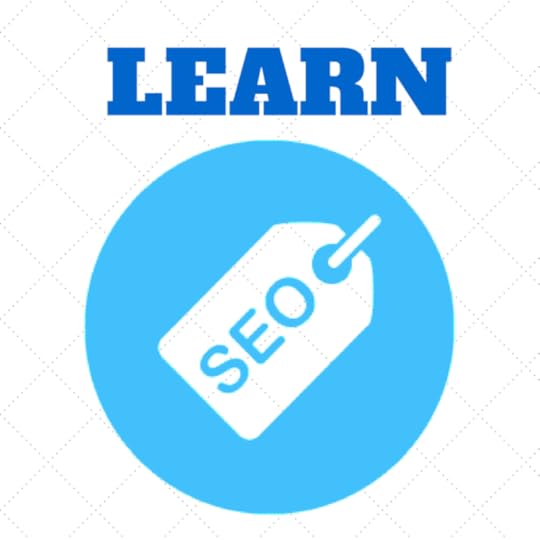 Have you ever wanted to learn how to tap into the vast stream of FREE traffic offered by Google and other major search engines but found it too complicated or confusing? Well you are not alone.
Have you ever wanted to learn how to tap into the vast stream of FREE traffic offered by Google and other major search engines but found it too complicated or confusing? Well you are not alone.If you have previously looked into Search Engine Optimization (SEO) techniques but failed to get the traffic your website deserves, you know that learning SEO can be confusing, especially for a beginner. There is a lot of "advice" available online, but much of it is out of date, too technical, or involves spammy software, techniques or services.
 For this reason, we have produced a book titled Learn SEO: Beginners Guide to Search Engine Optimization bringing you an easy to understand, step-by-step, beginner's guide to learning search engine optimization, based on years of experience in the industry, and fully up to date for the SEO challenges that face webmasters for 2015 and beyond.
For this reason, we have produced a book titled Learn SEO: Beginners Guide to Search Engine Optimization bringing you an easy to understand, step-by-step, beginner's guide to learning search engine optimization, based on years of experience in the industry, and fully up to date for the SEO challenges that face webmasters for 2015 and beyond.Providing clear explanations on every important ranking factor, and other vital aspects of Search Engine Optimization, you can improve your rankings, boost traffic, and ultimately sales by learning the straight forward SEO techniques presented in this book! Available in Paperback and e-Book formats.
Learn SEO Full Details
Learn SEO
Book SummaryUncover the traffic-generating, money-making keywords for your market or niche.Search Engine Optimize your website or blog to tap into maximum traffic from major search engines.Use dozens of effective insider optimization techniques that normally take years of learning to master.Create quality content that your website readers and search engines will love.Use Social Media Marketing (SMM) to boost your website audience and brand.Enhance the quality and speed of your website (Google loves fast sites with quality content!)Troubleshoot ranking problems and penalties.
Learn SEO: Beginners Guide to Search Engine Optimization
Published on November 02, 2014 22:37
March 26, 2014
Boost Online Book Sales with SEO
How to Boost Your Online Book Sales with SEO (Search Engine Optimization) Techniques.
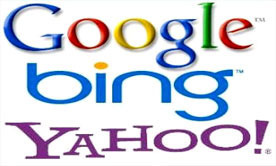 Many authors, whether self published or not, are aware of the impotence of using search engine optimization techniques as a means of driving targeted traffic from search engines to their author website or blog. Often overlooked however are the benefits of using these same SEO techniques to help improve the search viability of your actual online book sales pages on sites such as Amazon, Lulu and Smashwords, along with other promotional pages and social media posts.
Many authors, whether self published or not, are aware of the impotence of using search engine optimization techniques as a means of driving targeted traffic from search engines to their author website or blog. Often overlooked however are the benefits of using these same SEO techniques to help improve the search viability of your actual online book sales pages on sites such as Amazon, Lulu and Smashwords, along with other promotional pages and social media posts.
This article lists a number SEO tips for authors to help improve search engine rankings for these book pages and so boost your book sales online.
1. Create a Sales Funnel not an Aimless WebAll of your Social Media efforts should have one goal, to drive targeted traffic (readers) to your website or blog. From your website the aim should now shift to driving readers to your book sales pages. Whilst it may be a good idea to provide social sharing buttons on your website, it is also a good idea to avoid the overuse and over promotion of your social media profiles from within your website, after all it makes little sense to send a potential customer away from your website once you have managed to get them there!
When a user visits your website, they should be hard put to find many other links other than those links to places where they can download or buy your book(s). It is also a good idea to make every effort to capture a visitors email address after they have arrived at your website. Trading an email address for a free book or other benefit is a good strategy for helping to build an email list. Such an email list can provide an ideal platform for promotion of future releases and other targeted promotions.
2. Define your Targeted KeywordsChoosing the right keywords you wish to target is an essential task required for the next few steps. Along with the obvious choice of book title and author name, investigate which other words people search for when looking for your type of book. This could include genre, or industry terms for non-fiction. Once you have a list of suitable words conduct some research using a keyword tool such as the keyword planner in Google Adwords to ascertain which of these keywords or phrases are searched for most often. Select the most appropriate two or three high volume keywords and add those to your list along with title and author.
3. Optimize Book TitlesYour book title is the ideal place to insert your keywords, increasing your chances of these book sales pages ranking higher in search engines. Your books Subtitle is a good place to insert additional keywords, so long as it makes sense and is related to your book. In times gone by a books title needed to capture the attention of a reader. Today the same still rings true however to be successful selling your books online you must also catch the attention of search engines. Both should be served equally by your books title.
4. Leverage the power of Book DescriptionsYour books blurb is critical to the decision to buy for your your readers, but there are some things that are often overlooked with regards to optimizing your book descriptions for search engines. Ideally you should mention all of your keywords again, including the book title and author, at least once, several times if your description is quite lengthy. This will help search engines identify these as relevant phrases for your book listing page(s).
Some publishing portals allow the use of limited HTML within book descriptions. You should use these, where available, to reinforce your specific keywords by using <b> or <strong> tags to surround your title, author and keywords. If you have more than one instance of your keywords within your description you should emphasize the next instance using <i> or <em> tags. Many portals do not push the fact that you can use basic HTML tags, however CreateSpace and KDP both support the use of limited tags. Another way to use these tags effectively is to use a different font color (the <font> tag) where appropriate, to boost your sales message or hook.
5, Quality Incoming LinksJust like your website or blog, search engines will favor book sales pages with a number of quality incoming links. In addition to the links from your own website and blog, seek other back-links to your sales pages from Social Media and other sources. If you have a video advert for your book ensure that the video title and description include your keywords, and the first line of your description contains the link to your sales page. Only seek quality back-links from related, high quality pages within your niche.
Want to know more about effective SEO techniques? Check out our DIY SEO Guide.
Did you find this article helpful? Please leave a comment and share it with your friends using the share buttons below.
 Many authors, whether self published or not, are aware of the impotence of using search engine optimization techniques as a means of driving targeted traffic from search engines to their author website or blog. Often overlooked however are the benefits of using these same SEO techniques to help improve the search viability of your actual online book sales pages on sites such as Amazon, Lulu and Smashwords, along with other promotional pages and social media posts.
Many authors, whether self published or not, are aware of the impotence of using search engine optimization techniques as a means of driving targeted traffic from search engines to their author website or blog. Often overlooked however are the benefits of using these same SEO techniques to help improve the search viability of your actual online book sales pages on sites such as Amazon, Lulu and Smashwords, along with other promotional pages and social media posts.This article lists a number SEO tips for authors to help improve search engine rankings for these book pages and so boost your book sales online.
1. Create a Sales Funnel not an Aimless WebAll of your Social Media efforts should have one goal, to drive targeted traffic (readers) to your website or blog. From your website the aim should now shift to driving readers to your book sales pages. Whilst it may be a good idea to provide social sharing buttons on your website, it is also a good idea to avoid the overuse and over promotion of your social media profiles from within your website, after all it makes little sense to send a potential customer away from your website once you have managed to get them there!
When a user visits your website, they should be hard put to find many other links other than those links to places where they can download or buy your book(s). It is also a good idea to make every effort to capture a visitors email address after they have arrived at your website. Trading an email address for a free book or other benefit is a good strategy for helping to build an email list. Such an email list can provide an ideal platform for promotion of future releases and other targeted promotions.
2. Define your Targeted KeywordsChoosing the right keywords you wish to target is an essential task required for the next few steps. Along with the obvious choice of book title and author name, investigate which other words people search for when looking for your type of book. This could include genre, or industry terms for non-fiction. Once you have a list of suitable words conduct some research using a keyword tool such as the keyword planner in Google Adwords to ascertain which of these keywords or phrases are searched for most often. Select the most appropriate two or three high volume keywords and add those to your list along with title and author.
3. Optimize Book TitlesYour book title is the ideal place to insert your keywords, increasing your chances of these book sales pages ranking higher in search engines. Your books Subtitle is a good place to insert additional keywords, so long as it makes sense and is related to your book. In times gone by a books title needed to capture the attention of a reader. Today the same still rings true however to be successful selling your books online you must also catch the attention of search engines. Both should be served equally by your books title.
4. Leverage the power of Book DescriptionsYour books blurb is critical to the decision to buy for your your readers, but there are some things that are often overlooked with regards to optimizing your book descriptions for search engines. Ideally you should mention all of your keywords again, including the book title and author, at least once, several times if your description is quite lengthy. This will help search engines identify these as relevant phrases for your book listing page(s).
Some publishing portals allow the use of limited HTML within book descriptions. You should use these, where available, to reinforce your specific keywords by using <b> or <strong> tags to surround your title, author and keywords. If you have more than one instance of your keywords within your description you should emphasize the next instance using <i> or <em> tags. Many portals do not push the fact that you can use basic HTML tags, however CreateSpace and KDP both support the use of limited tags. Another way to use these tags effectively is to use a different font color (the <font> tag) where appropriate, to boost your sales message or hook.
5, Quality Incoming LinksJust like your website or blog, search engines will favor book sales pages with a number of quality incoming links. In addition to the links from your own website and blog, seek other back-links to your sales pages from Social Media and other sources. If you have a video advert for your book ensure that the video title and description include your keywords, and the first line of your description contains the link to your sales page. Only seek quality back-links from related, high quality pages within your niche.
Want to know more about effective SEO techniques? Check out our DIY SEO Guide.
Did you find this article helpful? Please leave a comment and share it with your friends using the share buttons below.
Published on March 26, 2014 11:26
March 22, 2014
How to Rename Blogger Page URLs
 How to Rename Blogger Page URLs for Better SEO
How to Rename Blogger Page URLs for Better SEODo some (or perhaps all) of your Blogger Page (static pages not blog posts) URLs look something like this?
http://yourblog.blogspot.com/p/blog_p...
If so then then your search engine optimization could be improved by renaming your page using a more keyword friendly URL. The problem here is that the Blogger system does not allow you to change the page name of a static page that has been Published.
Having conducted a quick search, it seems many have settled for the fact this is simply not possible. After experimenting for a while I have come up with a workaround for Renaming Blogger Page URLs. Follow the steps below to create a more search engine friendly page name (URL).
Log-on to your Blogger account and select Pages from the menu.Open Notepad or similar text editor and enter the text you wish to appear in the new URL, as normal text, using spaces to separate each word. Copy this line of text into your clipboard.Create a new Page (not post) and as soon as the edit page is shown, quickly Paste the contents of your clipboard (e.g. your new title) into both the Page Title box and the main Page Contents box in turn.Click Publish. You will be returned to the Pages screen. Click View underneath this new pages entry to verify it has your chosen keywords embedded within the URL.Underneath the original Page (the page you wish to rename) click Edit.Right click within the main page content area and select Select All, followed by another right click and select Copy.Click Close to return to the Pages screen and select Edit underneath the newly created page.In the main content area Delete the text you entered earlier (the copy of your title).Right click and select Paste. The contents of the old page should now be present on this new page.Modify the search description setting to suit your new page (include the same keywords!).Click Update to save your changes and be returned to the Pages screen.Underneath the old page select the Delete link to remove the defunct page.Go to Layout in the main menu and adjust your Pages Widget to reorder your page links (if necessary).
Why Rename Blogger Pages This Way?Its would seem that shortly after entering page edit mode, Blogger tries to save your page as a draft automatically. It will construct a name based on either the page title or the first few words it encounters on the page (the reason for the double title paste in step 4). Pasting the text this way ensures Blogger finds your text, before automatically saving and creating one itself. When it finds no suitable text you will be stuck with a page title such as blog_page_1.html
Create Custom RedirectsIf your old page has been around for some time it may well have a number of inbound links. Creating Custom Redirects from the Settings option in the main menu, from your old page URL to your new page URL will ensure visitors, and link juice, flow through to the new page.
Published on March 22, 2014 13:05
February 21, 2014
FREE SEO Book Promotion
FREE SEO BOOK PROMOTIONEveryone loves FREE Stuff right? Well, on Saturday February 22, 2014 and Sunday February 23, 2014 we will be giving away a FREE Kindle version of our popular SEO Book; (Usually retailing at
$3.97
or more!)
DIY SEO & Internet Marketing Guide: How To Do It Yourself Search Engine Optimization and Internet Marketing.

https://www.amazon.com/dp/B00H2KCSAG
https://www.amazon.co.uk/dp/B00H2KCSAG
How to Make Money on the internet is a popular question, and one that is easily answered; Simply create a quality website to sell your product or service, and follow the SEO Marketing guidance presented in this book to tap into the vast FREE Traffic offered by search engines. We will show you how to use SEO Search Engine Optimization techniques to get your website a steady flow of targeted traffic to your website, resulting in More Sales!
Topics covered in DIY SEO & Internet Marketing Guide, presented in an easy to understand format to suit professionals and beginners alike, include;
CREATE A SUCCESSFUL ONLINE BUSINESSCREATING A WEBSITEKEYWORD RESEARCHFREE & PAID INTERNET MARKETINGWEB PAGE SEO MADE EASYVIDEO OPTIMIZATIONSOCIAL MEDIA MARKETINGOFF-PAGE OPTIMIZATIONADVANCED OPTIMIZATION TIPSOVERALL WEBSITE OPTIMIZATIONSEO MARKETING IN THE FUTURETOP 10 SEO TIPSSEO GLOSSARY OF TERMS
The DIY SEO & Internet Marketing Guide is packed with time saving, and money making, SEO tips and tricks to help YOU achieve internet success for yourself or your business
DIY SEO & Internet Marketing Guide: How To Do It Yourself Search Engine Optimization and Internet Marketing.

https://www.amazon.com/dp/B00H2KCSAG
https://www.amazon.co.uk/dp/B00H2KCSAG
How to Make Money on the internet is a popular question, and one that is easily answered; Simply create a quality website to sell your product or service, and follow the SEO Marketing guidance presented in this book to tap into the vast FREE Traffic offered by search engines. We will show you how to use SEO Search Engine Optimization techniques to get your website a steady flow of targeted traffic to your website, resulting in More Sales!
Topics covered in DIY SEO & Internet Marketing Guide, presented in an easy to understand format to suit professionals and beginners alike, include;
CREATE A SUCCESSFUL ONLINE BUSINESSCREATING A WEBSITEKEYWORD RESEARCHFREE & PAID INTERNET MARKETINGWEB PAGE SEO MADE EASYVIDEO OPTIMIZATIONSOCIAL MEDIA MARKETINGOFF-PAGE OPTIMIZATIONADVANCED OPTIMIZATION TIPSOVERALL WEBSITE OPTIMIZATIONSEO MARKETING IN THE FUTURETOP 10 SEO TIPSSEO GLOSSARY OF TERMS
The DIY SEO & Internet Marketing Guide is packed with time saving, and money making, SEO tips and tricks to help YOU achieve internet success for yourself or your business
Published on February 21, 2014 07:09
February 13, 2014
Google PageRank for SEO
 Google PageRankDeciding upon what makes a Quality Backlink was at one time a simple matter of obtaining links from pages with a high Google PageRank. Things have however changed a great deal, with many other factors effecting how Google evaluates a link, including factors such as relevance, reputation and the quality of the linking website.
Google PageRankDeciding upon what makes a Quality Backlink was at one time a simple matter of obtaining links from pages with a high Google PageRank. Things have however changed a great deal, with many other factors effecting how Google evaluates a link, including factors such as relevance, reputation and the quality of the linking website.Whilst PageRank may have diminished in its own right with regard to overall ranking, it can still aid in your search for quality links as an indicator of the potential weight a link may offer if the previously mentioned attribute like relevance are also met.
What is PageRank?In a nutshell incoming links pointing to a web page are considered editorial votes for the page. In addition, some links are considered more valuable than others. PageRank is Google’s system for counting the votes (links) for a web page and uses them, combined with other factors, to determine how important or relevant a page may be.
Google’s technology page states; “The heart of our software is PageRank™, a system for ranking web pages developed by our founders Larry Page and Sergey Brin at Stanford University. And while we have dozens of engineers working to improve every aspect of Google on a daily basis, PageRank continues to play a central role in many of our web search tools.”
Understanding PageRankPageRank relies on the democratic nature of the internet by using its huge link structure to indicate an individual page’s value. In essence, a link from web page A to web page B is considered as a vote, by page A, for page B.
In reality, Google looks at many more factors than simply the sheer volume of votes, or links to a page; for example, it also analyzes the page containing the source of the link. Votes cast by web pages that are themselves considered important, provide more weight, helping to make other pages important.
Important, high-quality, and relevant pages usually receive a higher PageRank, which Google uses each time it conducts a search based on a users search query. Obviously Important pages mean nothing to you or a searcher if they don’t match the context of your query. Therefore, Google combines the PageRank score with other algorithms and text-matching techniques to find web pages (or other content) that are both important and relevant to your search.
These days this text analysis goes far beyond the number of times a word or phrase appears on a particular page (Keyword Density), and combines dozens of additional ranking factors related to the page’s content (and the content of those pages linking to it) to help determine if it is a good match for your search query and its position within search results. These factors include such subtleties as keywords on the linking page, the topic or nature of pages linking to the linking page, alternative word choices (on the target and linking page), and link location (links located towards the top of the content area are considered most relevant).
Google Toolbar PageRankA common source of confusion among webmasters new to SEO is the difference between PageRank (PR) and the Google Toolbar PageRank Score. PageRank is a numeric value calculated using an equation based on incoming links, outbound links on a page, and a few other qualifiers, whereas Google Toolbar PageRank is an integer value that is a representation of a pages position in a scoring system ranked from 1 to 10. The difference is one represents the actual PageRank value (worth) of a page, and the latter scores a page compared to others on the internet. The Google Toolbar (and other websites and utilities) will generally provide a page Toolbar Rank rather than the actual PR of a page.
PageRank (PR) are the actual values (based on links) that Google uses as part of its internal ranking algorithm. These scores are constantly being updated as Google crawls the web. In contrast, the Toolbar PageRank is simply a snapshot of internal PageRank, ranked against other sites, and usually updated every few months. This update frequency is decreasing of late, with only two updates performed in 2013, the first in February and again just in time for Christmas.
When you first develop and launch your website you may well see a non-existent or very low Toolbar PageRank score for your website or web pages. Don’t lose hope as this does not mean that your website is not collecting Internal PageRank credits; these will be reflected the next time a PR snapshot is performed and the Toolbar PageRank values are updated by Google. It’s likely that after a few weeks you will have gained some PageRank, and may see an increase in traffic as a result, even though Google Toolbar PageRank will still display your old score.
Using PageRankThere is still a valid place within SEO for PageRank to be used to help evaluate the value of an incoming link, the key word here is help, rather than rely upon.
When taking into account the relevancy of a page, it should also be considered that a pages PR flows through the links on the page equally, that is to say that the total PR for a page is then divided among the outgoing links contained on the page, therefore a page containing many outgoing links will dilute the PR of the page, and pages with less outgoing links will pass more Link Juice. For this reason seeking links from pages based on PR alone is not sufficient, we should seek links from high PR ranking pages within our topic or niche that are not too heavily diluted by outgoing links.
In addition to outgoing links, you should also evaluate a websites quality as you would your own. Does the site only link out to relevant sites? Is the site free of spelling and other mistakes? Are there obvious errors with scripts or markup? Use your knowledge of evaluating the quality of your own web pages when deciding if another page makes the grade
There are a number of tools available allowing you to view the Toolbar PageRank of a web page, the first and most obvious is Google’s own Toolbar, available for free from the search giant. There is also several plug-in utilities available for a number of browsers, including Firefox and Chrome, available from the appropriate plug-in or app store for your browser.
You could also use one of any number of websites that allow you to retrieve the Toolbar PageRank of any given web page or website URL, or even multiple pages, useful for checking out the competition!
PageRank Summary
Google PageRank calculates how important a page is, relatively speaking, compared to other pages on the web, based on links equating to votes for a page.Just one of numerous factors used to determine the ranking and relevance of a web page or website in search engine result pages.A high PageRank does not guarantee a high ranking in search results for any particular search term or keywords. If this were the case, sites with a Toolbar PageRank of 9 or 10 would dominate the result pages for any search you performed. The anchor (clickable) text of a link is often far more important than if it is located on a high PR page. It is however extremely important not to have all of your links as keywords as this looks unnatural. Link around a third using your keywords, another third using a combination of website name and website address (e.g.thesite.com), with the final third made up of generic terms such as “Click Here” etc.
Search RankAnother great way to find out which are the most relevant (and so best) pages to obtain links from is to think in terms of search rank. Perform a search for the words and phrases that you’d like your page to rank for and review the pages that appear highest in the search results.
These results are what Google considers the most important and relevant pages, and those that you should seek to obtain links from. Why? Well, because Google is telling you that for the keyword or phrase that you searched for, these are what are considered the most relevant results. Links to your site from these will be the most productive, more so if you can obtain a link from a “.org”, “.gov” or “.edu” domain as these carry additional weight and site authority status, as do older more established sites.
Published on February 13, 2014 00:07
February 7, 2014
Google Hummingbird Update
 Hummingbird UpdateTo celebrate its 15th birthday, Google held a press conference to announce the launch of a new Hummingbird algorithm update, claiming that Google search can now be a more humane way to interact with users and provide a more direct answer to a user natural language query.
Hummingbird UpdateTo celebrate its 15th birthday, Google held a press conference to announce the launch of a new Hummingbird algorithm update, claiming that Google search can now be a more humane way to interact with users and provide a more direct answer to a user natural language query.Google suggests that its hummingbird algorithm has gradually abandoned the traditional model, allowing users a more natural ways to use search engines.. Google has said that this is the largest algorithm update in three years with the last update three years prior, the caffeine plan.
Google search engine can now make use of more complex search requests with a better understanding of human language, rather than a few scattered words. Google stated that such an algorithm improvement is necessary because the available data shows that many users enter a query in the search box to search the complete questions, to which Google wishes to return a valid result, e.g. answer the question.
Also as more and more Internet users access the web via smart-phones and tablet devices, they will often enter through a complete interrogative voice tool, in which the motive for this Google algorithm update lies.
There are two innovations designed to return the answer to the user, rather than to reflect a simple set of search results: The new engine has a better contrast filter - which can help users through mobile devices with Google to achieve a more natural conversation.
With the new filters, users can order his phone to "Tell me more about Impressionist artist information," Google can provide more background information such artist, genre, or other relevant or useful content.
In addition, the current design assumes a different intent role in the mobile space than within desktop space. Google promised to provide mobile search applications a "more unified design," and highlighted for the user to provide answers, rather than search results.
Google Now, with the emergence of the hummingbird update, increasingly see themselves as an agent that can naturally interact with users, not just a portal leading to other websites. Google research and development department in the future may be more ambitious with its goals, perhaps providing medical diagnostics and personalized voting guide, or even the age old question "Why are we here?"
Hummingbird RecoveryThis update does not really represent a penalty, but more an improvement to Google’s search results, that could displace your site somewhat in the rankings. Certainly it would seem that we can improve our chances of ranking higher by developing two versions of our website, one for mobiles and optimized for the type of mobile search that hummingbird addresses, and our main website optimized for more traditional type searches.
Internet Marketing Blog on your Kindle.
Published on February 07, 2014 21:02
Avoiding Google Penalties
 AVOIDING GOOGLE PENALTIESBlack Hat Hurts!The days of using automated software, to post thousands of blog and forum comments containing your keyword heavy website link, in order to game search engines and increase rankings are over.
AVOIDING GOOGLE PENALTIESBlack Hat Hurts!The days of using automated software, to post thousands of blog and forum comments containing your keyword heavy website link, in order to game search engines and increase rankings are over. With the coming of Google's Penguin and Panda updates the days of SEO ranking for low quality links have come to an end, along with another form of web spam, namely keyword stuffing. Avoiding Google Penalties is now an important aspect of your website that should be evaluated, especially if you, or someone on your behalf has used less than ethical promotion tactics and techniques in the past.
Keyword stuffing is the practice of using an unusual amount of related, or in some case, not related keywords, that are placed onto a page simply in an attempt to rank for those phrases.
Today, these types of Black Hat website promotion techniques will at best do you no good, and at worst get your website banned from the search engine altogether!
To avoid Google penalties or the wrath of the search engines, use keywords in moderation only, keeping them in context, and only seek links from quality sources and authority site. We have ranked websites recently with less than 20 links; it's all about quality not quantity of inbound links.
Never use unrelated keywords for SEO in an attempt to drive more traffic to your website. Search engines will notice this, and take action against you, leaving you not ranking well for either the out of place, or your targeted keywords. Only ever target keywords directly related to the topic or niche of the page.
Published on February 07, 2014 20:39



